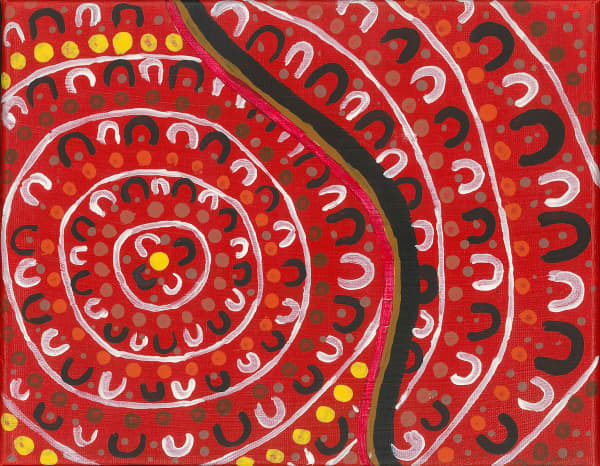Providing public education
Partnering with families, communities and agencies to support the educational engagement of every student
Partnering with families, communities and agencies to support the educational engagement of every student
As students come to school with a range of learning, social adjustment and mental health issues, we engaged with families to better understand and support the interests, personalities and needs of their children. We also continued to build partnerships between our schools – across sectors and systems – and other agencies and organisations to provide specialist support services that schools cannot provide.
- Best start to learning for young children
- Collaboration with families
- Collaboration with other agencies and organisations
In 2019–20, our 21 Child and Parent Centres provided 605 programs and services with approximately 73,500 child attendances and 72,500 adult attendances. The centres continued to support families and communities to provide young children with the best start to learning.
Construction of the Child and Parent Centre at Arbor Grove Primary School in Ellenbrook was completed in June 2020.
In 2020, we finalised a new five-year grant agreement with Playgroup WA to continue the Enhanced Transition to School Project. This partnership between the Department, the Australian Government, Catholic Education Western Australia, Association of Independent Schools of Western Australia, and Playgroup WA aims to improve the transition of pre-school children and their families to Kindergarten.
In 2019, the project supported 252 playgroups on school sites and 129 community‑led playgroups providing opportunities for wrap-around services, community engagement, and support for the transition of children to school.
Schools continued to support parents, caregivers and others in the community to model and reinforce positive behaviour to young people through the Positive Parenting Program (Triple P). In 2019, 5,120 parents attended 622 Triple P sessions facilitated by our staff and offered through schools, Child and Parent Centres, and not-for-profit organisations.
In 2019–20, we managed the School Drug Education and Road Aware program. Through this program:
- 812 public and non-government school staff participated in alcohol and other drugs education professional learning
- 377 parents of children in public and non-government schools attended alcohol and other drugs information seminars
- 227 public and non-government schools delivered the Keys4Life pre-driver education program which included information sessions attended by 1,868 parents.
Services commenced in 2019 at the new Hobbs Drive Youth and Community Services Hub as part of the Full Service Schools three-year pilot at Armadale Senior High School. In 2019, 12 government and 25 non-government agencies worked collaboratively to provide a range of youth and family support services to the two initial target groups: young people who are pregnant or parenting, and young people who are vulnerable to homelessness or family and domestic violence.
To support the provision of education services to children and young people in detention, we continued to fund the Department of Justice with the salaries and on‑costs for three full-time equivalent teachers employed at Banksia Hill Detention Centre. We also provided education staff at the centre with access to online professional learning courses.
Our School of Special Educational Needs: Behaviour and Engagement continued work with the Department of Justice to support students moving between Youth Justice Services and schools.
We contributed to the Kimberley Juvenile Justice Strategy, a cross-government approach led by the Department of Justice to address youth offending rates and antisocial behaviours in the Kimberley region. In 2019–20 we:
- appointed a Youth Transition Coordinator located in the Kimberley to provide tailored support to young people exiting the care of justice services by collaborating with Banksia Hill Detention Centre staff, the community, and the young person and their family
- commenced an alternative education program in the Kimberley designed to divert vulnerable students from offending by offering a pathway for them to reengage with education, and receive life-skills training and possible employment opportunities.
We maintained partnerships with other government agencies, including the Department of Communities, Department of Justice and Department of Health, through established memoranda of understanding.
We continued to partner with BHP to improve education opportunities and outcomes for students in the Pilbara. Through targeted programs, the BHP Pilbara Education Partnership focused on increasing the range of school based traineeships and ATAR courses available to students, preparing pre-school children and their parents for school through a playgroup, and delivering academic enrichment programs for students in Years 4 to 6. Schools were also eligible for funding to trial projects and implement programs relevant to their local context.
Explore the story behind the artwork in our strategic directions for public education in Western Australia.
Cultural responsiveness
Facilitating culturally responsive institutions, enabling Aboriginal students to gain ground through their identity, language and culture
The 'U' shapes represent our students, school staff, school leaders, parents, families and communities. It symbolises how cultural responsiveness in all Western Australian public schools is everybody’s responsibility.
The 'U' shapes sitting next to each represents working together and co-design to ensure success for all students.
The circles within circles represent how we are working towards reconciliation and how this must live in the hearts, minds and actions of all of us.
